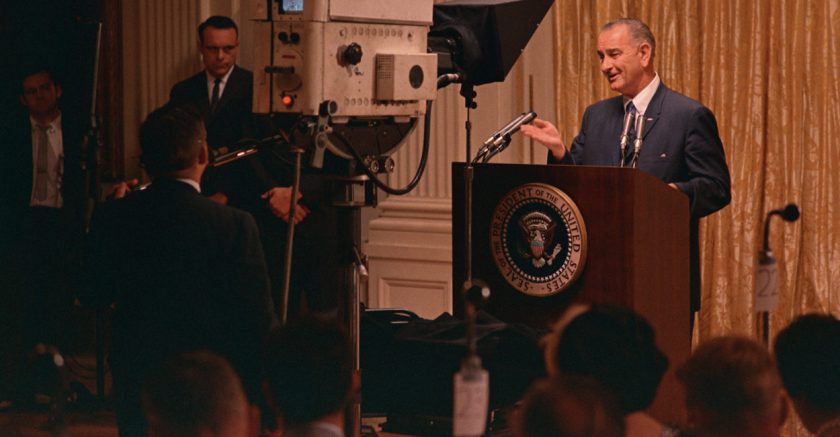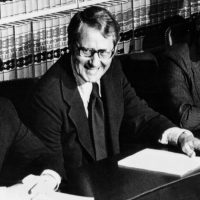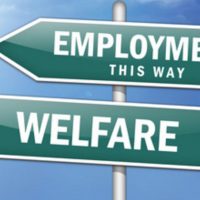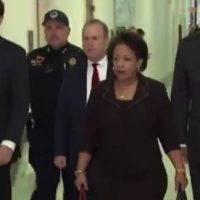The president was frustrated with the media coverage of him and his policies, swearing that 85 percent of all newspapers were against him.
“Our newspapers cannot be edited in the interests of the general public,” the president griped. Then, almost derisively, he said: “Freedom of the press. How many bogies are conjured up by invoking that greatly overworked phrase?”
So, he opted to bypass the traditional media he was convinced was unfair and speak directly to America.
And President Franklin D. Roosevelt’s fireside chats on the radio, beginning in 1933, proved to be a successful political move.
The verdict is still out on President Donald Trump’s tweets, though.
Trump regularly tweets about “fake news.” He has doubled down on the view that overly critical news outlets are the “enemy of the American people.”
He talked about more stringent libel laws to make it easier to sue news organizations, threatened the broadcast license of certain networks, and the Trump White House pulled the press pass for CNN personality Jim Acosta after a confrontation at a press conference.
But so far he hasn’t taken government action, as Roosevelt and other past presidents have.
A Trump-appointed federal judge sided with CNN on the Acosta press pass. Congress is unlikely to enact new libel laws, as Supreme Court precedent sets a high standard for a public figure to sue a news outlet.
The Federal Communications Commission lacks the authority to pull a license of a network (which aren’t licensed), having purview only over individual stations that operate on the public airwaves (which are licensed). Cable news outlets such as CNN, MSNBC, and Fox News Channel also are not licensed and not subject to FCC regulation.
Past presidents have taken tangible actions to undermine a free press. Trump has so far taken only a more negative rhetorical tone toward the press, said David Beito, a history professor at the University of Alabama.
“Would he like to do something? He probably would, but a change of tone has been the biggest difference,” Beito told The Daily Signal, characterizing Trump’s rhetorical attacks on the press as more aggressive than most of his predecessors.
Roosevelt and Woodrow Wilson were among the biggest presidential offenders during the 20th century, he added.
“Wilson was extremely hostile to any sort of criticism, but it was couched in terms of wartime and the red scare,” Beito said. “Everyone knew Wilson was doing this. FDR was very subtle. Roosevelt was effective working through third parties. It was hard tying him to anything.”
Here are seven examples of presidential administrations that went well beyond rhetoric in going after the press.
1. ‘Thank’ Obama
The Obama administration’s Justice Department launched more leak investigations under the World War I-era Espionage Act than any other administration in history, according to then-New York Times reporter James Risen, writing in a December 2016 op-ed.
The Obama administration targeted Risen with a subpoena to force him to reveal his sources.
In a separate case, the Obama Justice Department named then-Fox News Channel reporter James Rosen as an unindicted co-conspirator. The Justice Department also seized the phone records of Rosen’s parents.
The Obama administration also seized the phone records of Associated Press reporters and editors, seizing records for 20 separate phone lines, including cellular and home lines.
Read the full story from The Daily Signal
Want more BFT? Leave us a voicemail on our page or follow us on Twitter @BFT_Podcast and Facebook @BluntForceTruthPodcast. We want to hear from you! There’s no better place to get the #BluntForceTruth.







